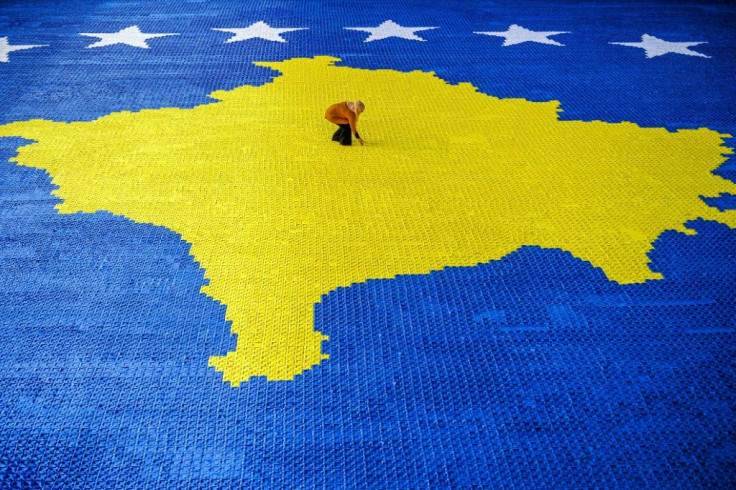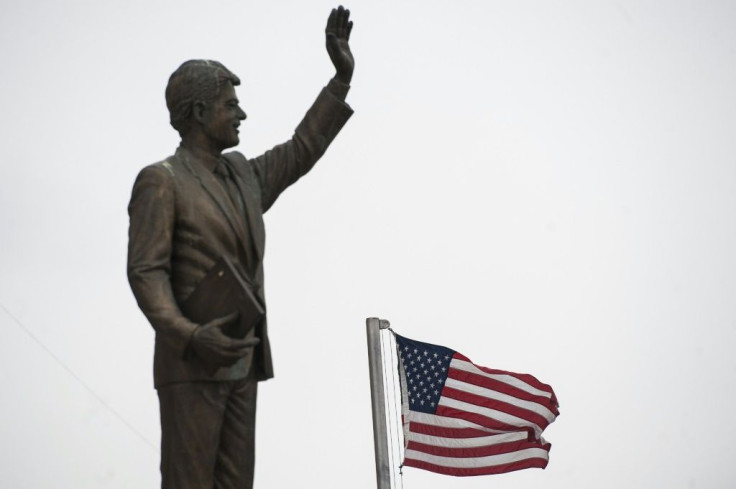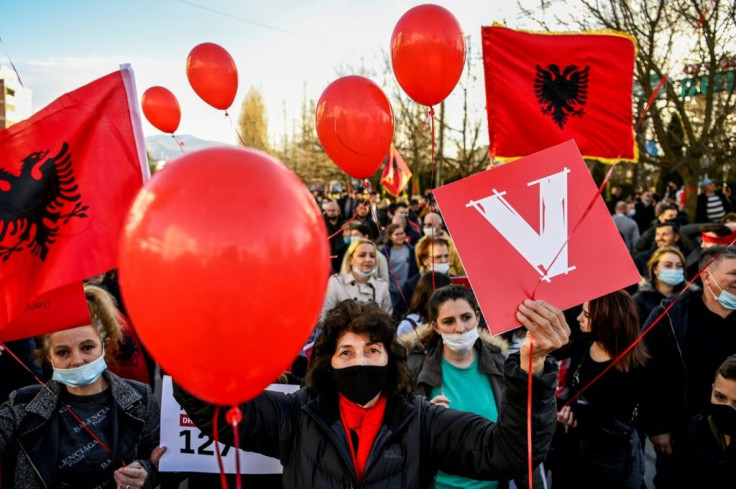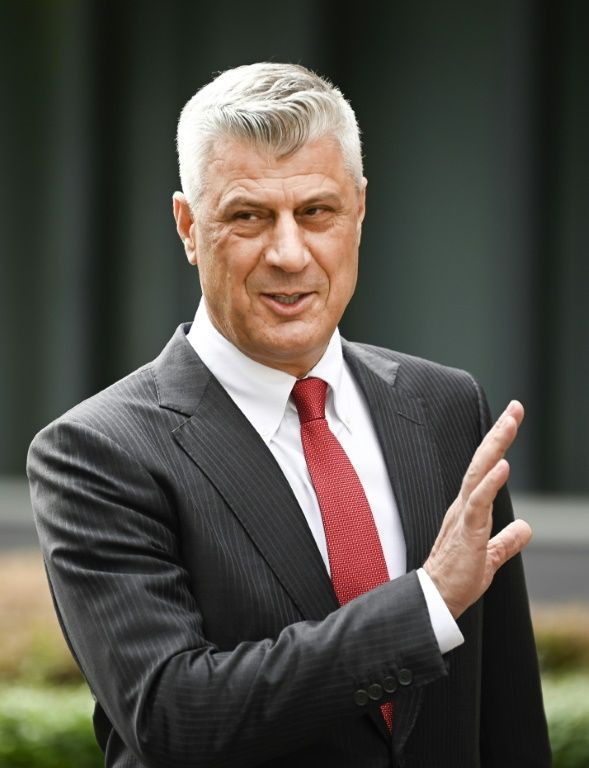Pop Royalty, US Pride And A Special Court: 5 Facts On Kosovo
Kosovo, one of Europe's poorest economies, will hold early legislative elections on Sunday.
Here are five things to know about the former Serbian province, which broke away from Belgrade in a bloody 1990s war and is still fighting for full global recognition of its statehood.

Kosovo's reputation as "the most pro-American country" in the world is visible on the streets, where US flags are a common sight.
The love for all things American is rooted in gratitude for Washington's support during Kosovo's struggle for independence from Serbia, including the US-led NATO intervention that ended the war in 1999.
The capital, Pristina, is home to a statue of former US president Bill Clinton, a bust of former US secretary of state Madeleine Albright and a boulevard named after former president George W. Bush.

Klinton and Medllin -- a Kosovar twist on Clinton and Madeleine -- are also popular names for children born after the conflict.
The late son of the current US president, Beau Biden, also has a street named in his honour for his work in Kosovo training judges after the war.
With popularity comes influence. Washington wields heavy clout in Pristina, leading to the joke that Kosovo has two governments: one that is elected and another in the US embassy.

Kosovo is home to around 1.8 million people, with another 700,000 estimated to live abroad, mostly in Germany and Switzerland.
The diaspora is a hefty economic force, transferring home around 800 million euros ($900 million) each year -- direct spending that equals a year's government budget.
The former province is home to one of Europe's youngest populations, with half aged under 25.

It also has among the highest unemployment rates for youth, topping 50 percent, a major factor pushing people to move abroad.
Some of Kosovo's most famous ambassadors are diaspora pop stars, including the UK-raised Dua Lipa and Rita Ora, who both speak proudly of their Kosovo roots and do not miss a chance to promote its independence.

Three different flags can be found flying across Kosovo.
The official flag bears the diamond shape of its territory and six stars symbolising the six main ethnic groups on a blue background.
It is jokingly called a "towel" by members of Kosovo's ethnic Albanian majority, who believe the flag was adopted largely to please Western patrons who wanted a neutral symbol.
The colours more commonly flown across Kosovo are the pan-Albanian symbol of a black double-headed eagle on a red background, which is also the official flag of neighbouring Albania.
The exception is in enclaves home to Kosovo's significant Serb minority, who still fly the Serbian colours as a symbol of their loyalty to Belgrade.
Since 2015, Kosovo has been beholden to a war crimes court with a unique status.
The Kosovo Specialist Chambers operates under Kosovo law but has international judges and is based in the Dutch city, The Hague.
Its location comes from the sensitivity of the investigations: alleged crimes committed during Kosovo's 1998-99 rebellion against Serbia.
The hope is to protect witnesses from threats and heavy pressure in a society where the former rebel leaders still hold significant sway.
Kosovo's former president Hashim Thaci resigned in late 2020 after he was indicted by the court and is now awaiting trial in The Hague for crimes including murder, torture and persecution during the war.
More than 90 percent of Kosovars identify as Muslim, making it one of Europe's few Muslim-majority territories.
Most practise a liberal form of Sunni Islam.
Research shows that for many, religion is a private matter and ethnicity takes precedence.
"The religion of the Albanians is Albanianism," goes one common saying.
But recent years have seen growing pockets of extremism, leading authorities to crack down on a handful of radical imams.
© Copyright AFP 2024. All rights reserved.




















